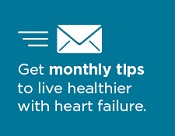Procedures and Treatments
Our experienced doctors and surgeons use the most advanced diagnostic tools and treatments. You have access to everything from minimally invasive catheterization procedures to robotic and open surgery in state-of-the-art operating rooms.
Diagnostic Procedures
- Electrocardiogram (EKG) – A graph of your heart's activity made using electrodes attached to your chest, looking for abnormalities in your heart's electrical impulses
- Echocardiogram – An image of your beating heart made using ultrasound waves, used to find issues with your heart's structure
- Transesophageal echocardiogram (TEE) – Images of your heart valves using an ultrasound device in your esophagus, which is behind your heart
- Transthoracic echocardiogram (2D and color-flow Doppler) – Measuring the size and shape of the heart, as well as the speed and direction of blood flow
- Diagnostic catheterization – Measuring blood flow in the heart or veins using a catheter, a small hollow tube (2-3 mm diameter) inserted into arteries in the leg or arm and moved to the right or left sides of the heart
Treatments
- Angioplasty – A minimally invasive, nonsurgical procedure using a catheter (a long narrow tube) with a balloon that inflates to open blocked arteries, sometimes used to place a stent (a metal mesh tube that keeps the artery open)
- Heart and lung transplant – Surgery to replace a diseased heart or lung
- Pacemaker – An implanted device that electronically controls your heartbeat and keeps it from falling below a preset rate
- Implantable cardioverter defibrillator (ICD) – An electronic device that adjusts irregular heart rhythms such as tachycardia (sustained fast heart rate) and arrhythmia (irregular heartbeat)
- Surgery – We use both minimally invasive robotic surgery and open surgery for aortic valve replacement and coronary bypass
Cardiac Rehabilitation
- Baseline patient assessment – we evaluate your current health status
- Exercise training – showing you how to improve your health through proper exercise
- Physical activity counseling – tips and guidance on how to increase physical activity for a healthier heart
- Risk factor management – how to deal with conditions that could cause heart issues
- Nutritional counseling and referrals – learn the best ways to eat for heart health
- Psychosocial interventions and referrals – help with behaviors, thoughts and actions to improve overall well-being
Preventative Care
- Risk reduction, diet and exercise programs – learn the best ways to take care of your heart and prevent serious issues
Find a location near you to make an appointment with our heart team.

